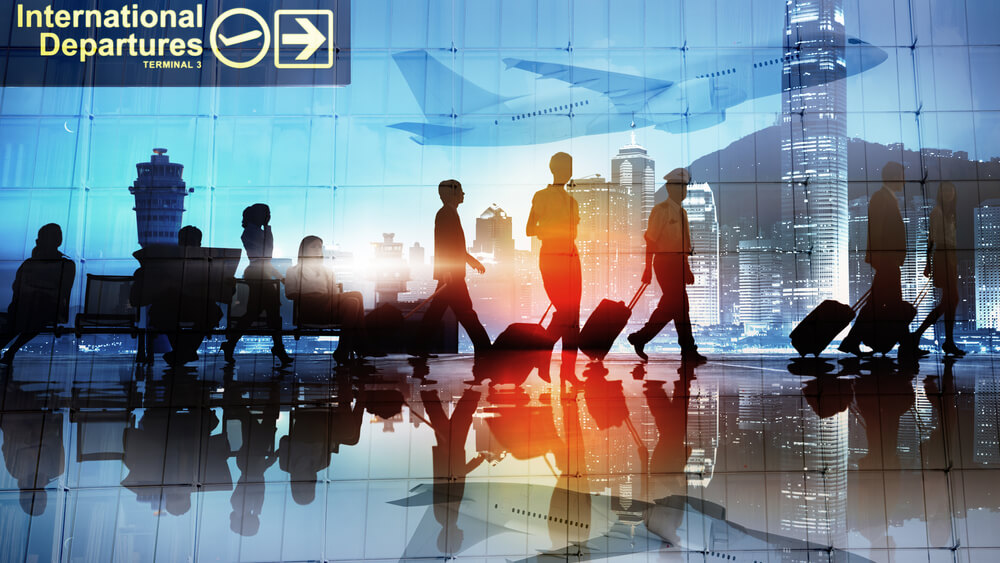The State of the Union address may have reinforced the “America First” agenda for the Trump Administration, but the state of the travel industry seems to be putting the country closer to last place for visitors from outside the U.S. A report from Tourism Economics reveals that, while international travel increased by six percent in 2018, the U.S. saw a fraction of that growth. The number of international arrivals to the U.S. rose by just 2 percent last year. Arrivals to Europe and Asia increased by 6 percent, and arrivals to the Middle East saw a 10-percent boost.
“The U.S. continued to lose market share last year as international travel expanded 6 percent globally across all world regions,” Adam Sacks, president of Tourism Economics, told Convene. “This reinforces our continued concern that global antipathy towards ‘America First’ rhetoric and policy is affecting international travel to the U.S.”
Talk of travel bans or building walls isn’t the only factor that Tourism Economics believes may be working against the U.S. Sacks pointed to a global economic slowdown and the strength of the dollar as two of the headwinds that are pointing travelers to other destinations. While Sacks noted that there is no direct correlation between a decline in international tourists and international conference attendees, the data does raise questions about the appeal of the U.S. as a destination overall. According to the results of the Decision to Attend Study, the destination is the second most important factor in determining whether to register for a meeting or event. Plenty of event organizers use pre- and post-meeting experiences as additional selling points to nudge prospective attendees to register and make the trip. If they aren’t interested in coming to the states to explore a destination in their leisure time, would they travel there just for the conference alone?
The results of the most-recent Convene Meetings Market Survey seem to reflect the overall dip in international travelers. On average, 6 percent of the registered attendees at respondents’ largest events in 2018 were international vs. nearly 8 percent in 2017.
The Experience Should Speak Louder Than Exchange Rates or Travel Policies
Bill Reed, FASAE, CMP, chief event strategy officer for the American Society of Hematology, takes issue with the notion that location trumps content. Event organizers should remember that the sessions, speakers, and takeaways hold the biggest influence over attendees, he said, no matter where they live.
“For me, any conversation about international attendance at meetings is directly related to the takeaway value that the meeting is offering its participants,” Reed told Convene. “If one is experiencing declining international attendance, our colleagues can be quick to point to reasons outside of our control.”
Such factors might include the currency exchange, newly imposed regulations, travel costs, and challenges obtaining visas. In fact, 88 percent of respondents to the Meetings Market Survey said that it was more difficult for the potential registrants to obtain visas last year than in 2017.
Regardless of those external issues, Reed said that organizers need to “challenge ourselves to critically examine what is within our control. Are we designing meetings that are worth traveling from the other side of the world in order to attend? Is the content the best available and novel? If the meeting is unique, and delivers something exceptional, people will come because the greatest outcomes can be accelerated face to face.”
The ingredient of exceptionality will be more important than ever this year. Tourism Economics’ data shows that the cost of traveling to the U.S. has increased more than 10 percent over the past five years due to exchange rates, and the company projects that “inbound travel performance will remain tepid” in 2019. Rather than letting that prediction carry over to conferences, Reed said it should motivate education and events teams to develop can’t-miss programs.
“While certainly, there are ways that the U.S. can become more friendly as it relates to access to cross borders, and portraying a welcoming spirit to the world,” Reed said, “as business event strategists, it calls upon all of us to make sure that our conference experiences and content are worth someone traversing the globe to participate.”
Talk of tariffs will impact certain conventions and trade shows. Click here to read a recent Convene article on how to avoid letting a trade war wage a battle against attendance numbers.

